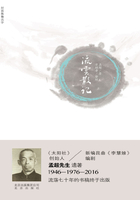Sima Tan, the father of Sima Qian (c. 145 BC-87 BC), was an official who had responsibility for astronomy and calendars as well as imperial books during the reign of Emperor Wu (156 BC-87 BC) of the Han Dynasty (206 BC-220 AD). His grand ambition however was always to compile a general history. Unfortunately he died before he could start writing it. Sima Qian determined to carry out the unfinished wish of his father. After he succeeded to his father’s post, he began to read all imperial literature, to collect and collate all relevant materials and even to go out to carry out field surveys, all in preliminary preparation for the great magnum opus. In about 104 BC, Sima Qian began to write The Records of the Grand Historian.
In 99 BC, a great event happened in the Han Dynasty and Sima Qian was intimately involved. This event came very close to aborting the great historical project before it had really started.
Emperor Wu sent General Li Guangli to attack the Hun, who were duly annihalated. General Li Ling led 5,000 soldiers against the Huns, but was besieged by some 30,000 of the enemy. After fierce combat, Li Ling and his soldiers killed more than 5,000 Hun cavalry. However, they were outnumbered and there were no reinforcement on the way, so Li Ling had no choice but to surrender to the Hun.
Emperor Wu imprisoned the mother, wife and children of Li Ling and threatened to punish them. All the officials in the court condemned Li Ling for being so afraid of honorable death and surrendering to the enemy. No one was willing to speak up for Li Ling.
Sima Qian couldn’t bear to see this and he stood up bravely to speak. He said, “Li Ling is loyal and filial. He is faithful to his friends and is modest about his accomplishments. In particular, he looks after his soldiers well and always personally leads the battle charge. He surrendered because he had no choice: he was driven from pillar to post. The reason why he didn’t choose to die by suicide is that he wants to live in the hope of rendering future service to the Han Dynasty.”
Emperor Wu was extremely angry at these words, thinking that Sima Qian was denouncing General Li Guangli who was the elder brother of the emperor’s favorite concubine.
The emperor put Sima Qian in prison and sent some officials to interrogate and torture him. Sima Qian stood bravely resolute despite the enormous physical and mental agony he was subjected to. According to the law of the Han Dynasty, money could be used to exempt someone from the death penalty. Sima Qian had a low official rank and was too poor to pay to commute his sentence. However he knew that to complete The Records of the Grand Historian, he had to live. Hence, he confessed to the crime he was accused of and escaped the death penalty. However, he suffered castration which was a burning shame for him. But just in order to write his famous book, Sima Qian outlived this terrible time in his life. In 96 BC, Emperor Wu changed the tenor of his reign and implemented a general pardon. Sima Qian, now over 50 years old, was released from prison. He took the post of Prefect of the Palace Writers and began to write The Records of the Grand Historian attentively. In 91 BC, it was finally completed.
The book recorded Chinese history over 3,000 years from the time of the Yellow Emperor until the reign of Emperor Wu.
With over 500,000 Chinese characters, the book comprises 12 volumes of Imperial Biographies, 10 volumes of Tables, 8 volumes of Treatises, 30 volumes of Biographies of the Feudal Houses and Eminent Persons and 70 volumes of Biographies and Collective Biographies, totaling 130 volumes. In the book, the historical facts are reliable and the comments and remarks generally fair and even-handed. It is really a remarkable memoir.















